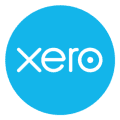
Preparing for the new normal and building a financial plan
There is some light at the end of the tunnel for small businesses. As the lockdown continues to ease many retailers and hospitality businesses are now opening up again, or preparing to return soon.
Preparing for what’s around the corner has always been key to business success. Whilst there is still much uncertainty, it’s more important than ever that businesses get in control of their finances and create a solid plan.
Having a strong understanding of your cash flow and a plan for the months to come is vital to helping you prepare for what’s ahead. If you’re unsure where to begin, here are five ways to start:
Take stock
Financial experts, Lauren Harvey (Founding Director of Full Stop Accounts) and Jonathan Graunt (Founder of accountancy firm FD Works and Xavier Analytics) recently spoke with Xero about the uplift in businesses taking an interest in their finances and understanding their financial position.
Businesses should be using this time to review their processes and really understand their numbers. It can be helpful to reflect on your original statement - what do you really want your business to do? And has the pandemic changed this? Use this as the fuel to drive your business vision forward.
Consider the risks
The government has provided SMEs with a number of support schemes, but the conditions and capital being offered is changing.
For example, the Furlough Scheme will currently only run until the end of October and the deadline to furlough new employees has now passed. The government will also gradually be reducing the amount it pays under this scheme. Make sure you’ve accountanted for this in your financial plan so you have a clear picture of how furlough tapering off will impact your business and any adjustments you might need to make.
If you’ve taken out one of the Government backed loans, now is the time to start building repayments into your financial plan. Building a solid plan will also help to ensure that you use the money in the best way to support your business in the long term. It can be tempting to fight the most immediate fires with your capital, but try to think about the longer term health of your business - and where the money is going to have the most impact.
Adapting to a change in demand
COVID-19 has forced businesses to adapt to a lot of changes and SMEs should be thinking carefully about how their customer demand has changed. What do customers expect from you now? For example, many are still apprehensive of shopping on the high street. This might mean some of the options you offered during lockdown like deliveries or online services should remain.
Communicate with your customers as much as possible to get an accurate view of what they need from you now and in the future. How can you fulfil this? Then it’s important to look at the numbers and scrutinise which areas are going to provide the most return on investment.
Financial planning: where to start?
For financial planning to be effective, it’s helpful to get into habits that will provide an accurate snapshot of how your business is performing. Reconciling bank transactions daily, creating a daily simple cash flow check-in habit and examining your profit and loss statements weekly will give you a better understanding of where your business stands.
Apps like Float or Fluidly will help to give you an accurate look at your cash flow in an easy to read visual. And the recently launched Xero Short term Cash Flow tool can help you project your bank balance 30 days into the future, showing you the impact of existing bills and invoices if they’re paid on time. You can then work out which invoices you should follow up on.
Some people can find this task daunting, but your accounts aren’t just being kept for reporting to HMRC, they are also there to give you invaluable insight into your business and to plan for the future.
Ask for help
Your accountant is there to help you to understand your finances. This is likely to be one of the biggest economic challenges you have ever faced as a small business owner. Now, more than ever, it is time to lean on your accountant to help create a robust plan.
If you do not understand something, or need guidance or clarification, get in touch and ask for their expertise and advice. If their advice doesn’t help, ask them to explain it again.
You can also check out Xero’s online guide to managing cash flow here.


